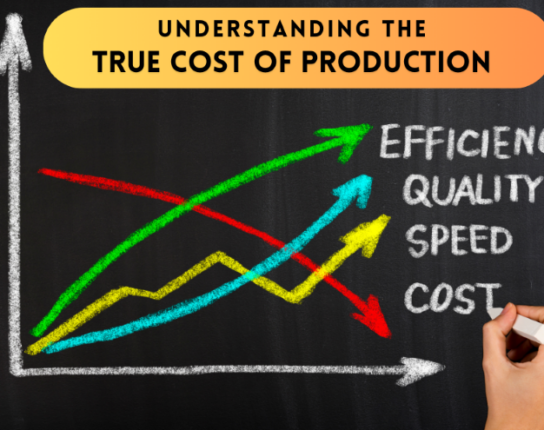Inflation is a persistent and pervasive economic phenomenon that can have a significant impact on food manufacturers. With the cost of raw materials and ingredients expected to continue to increase in 2023, food manufacturers need to be proactive and take steps to hedge against inflation. Your food manufacturing business is monitoring economic trends to forecast inflation, but there are many moving parts to your business to keep track of, which can make it difficult to know which strategies need to be adjusted and when. In this article, we discuss some best practices that can be used to hedge against inflation and remain profitable.
Long-term contracts
One way that food manufacturers can hedge against inflation is by negotiating long-term contracts with suppliers for essential raw materials, such as grains, sugar, and oils. Long-term contracts provide stability and predictability, which can help manufacturers better manage costs and minimize the impact of inflation. For example, negotiating multi-year contracts with corn farmers to lock in prices for corn, a key ingredient in many food products. Locking in long contracts can also help secure better deals on raw materials and resources.
Diversify suppliers
Relying on a single supplier for key ingredients can be risky if that supplier raises its prices due to inflation. By diversifying their supplier base, food manufacturers can spread their risk and reduce their dependence on any one supplier. For example, sourcing sugar from multiple suppliers makes it more feasible to weather price increases from one supplier, than a manufacturer that relies on a single supplier.
Price increases
If food manufacturers are unable to mitigate the impact of inflation through the strategies above, they may need to pass on the increased costs to customers through price increases. However, price increases should be done strategically and with sensitivity to market conditions and customer demand. For example, a food manufacturer may choose to raise prices for premium products that are less price-sensitive, rather than raising prices for all products.
One approach that some manufacturers use is to implement “smart pricing” strategies, which involve using data and analytics to optimize pricing strategies based on market demand and consumer behavior. For example, a manufacturer may use data to identify which products are price-sensitive and which are not and adjust prices accordingly.
Increase efficiency
Food manufacturers can focus on increasing efficiency in their operations to reduce costs and improve profitability. This could involve streamlining production processes, optimizing supply chain logistics, and investing in technology to automate tasks, all which help reduce costs, increase efficiency, and improve the ability to respond to market changes.
Get ahead of the game
Food and beverage manufacturers face significant challenges when it comes to combatting inflation. Food manufacturers need to be proactive and flexible in their approach to managing inflation to remain competitive and profitable in the long term.
Harvest Food Solutions offers HarvestERP to help you manage every aspect of your foods manufacturing process.
By staying on top of resource management, you can avoid costly mistakes and reduce ingredient waste.
Stop wasting time, losing money, and throwing away resources by bringing peak efficiency to your production system. We are ready to help you improve your daily operations with ERP. Contact us today and let’s talk!










